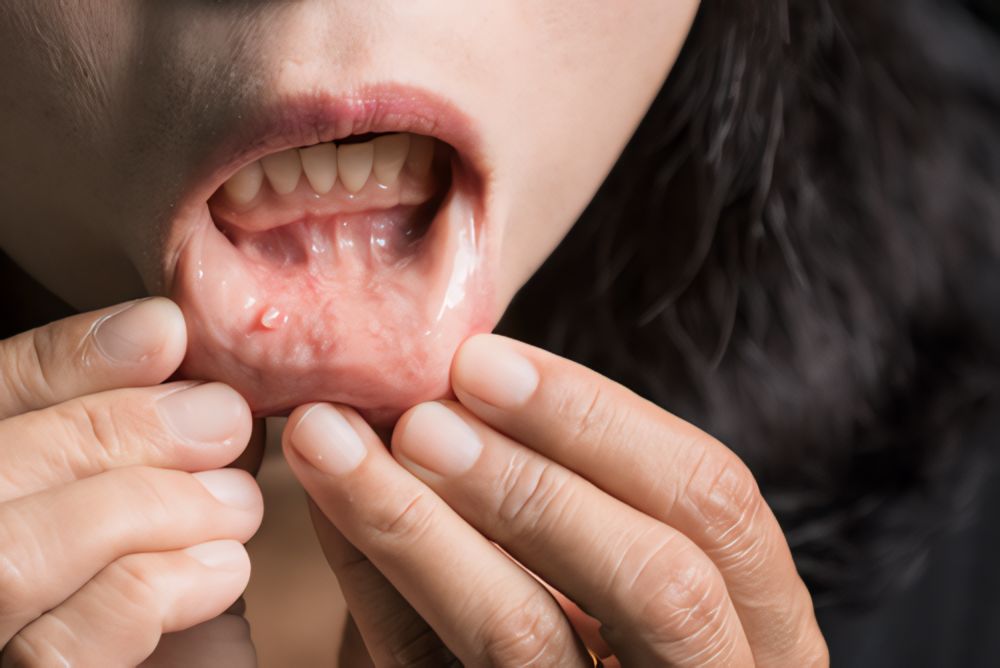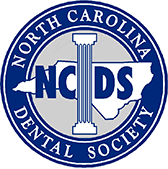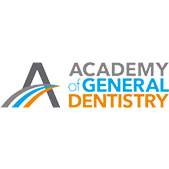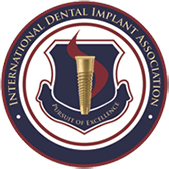
Imagine this: you’re enjoying a delicious meal, savoring the flavors, and suddenly feel a weird lump in your cheek. Panic sets in – could it be cancer? While oral cancer is a serious concern, there’s a lot of misinformation floating around that could lead to confusion and even delay in diagnosis and treatment.
At Modern Family Dental Care, we offerVelscope oral cancer screening in Concord and Charlotte, NC, to detect mouth cancer. Dr. Taj Haynes, our experienced Concord dentist, is here to debunk the top 8 oral cancer myths we hear most during routine oral examinations and empower you with the knowledge to keep your smile healthy.
Let’s get started!
Myth 1: Only Smokers and Tobacco Users Get Oral Cancer
One of the most pervasive myths about oral cancer is that it only affects smokers. While it is true that tobacco use, including smoking and dipping or chewing tobacco, increases the risk of developing mouth cancer, it is not the only risk factor. In fact, non-smokers can also develop mouth cancer due to other factors such as heavy alcohol use, human papillomavirus (HPV) infection, genetics, and a struggling immune system.
Mouth cancer rates are higher in men, particularly those aged 50 or older. So, being an older man increases your risk. Additionally, a significant portion of mouth cancers are secondary, meaning they originate in another part of the body and spread to the mouth.
Myth 2: Oral Cancer Only Affects Older Adults
Another common misconception is that mouth cancer only occurs in older adults. While it is true that the risk of developing oral cancer increases with age, it can also affect younger individuals, including those in their twenties and thirties.
Mouth cancer can develop at any age, which is why Dr. Taj continually educates and advises our patients to be aware of its signs and symptoms regardless of their age. Early detection is key to successful treatment and improved outcomes.
Myth 3: Mouth Cancer is Rare
Some people believe that oral cancer is a rare disease and that they are unlikely to develop it. However, oral cancer is not as rare as you might think, as it ranked among common cancers worldwide. In fact, approximately 58,450 people in the United States are expected to be diagnosed with oropharyngeal and oral cancer this year.
Myth 4: Pain is Always the First Sign
While some cases of oral cancer can cause pain and discomfort, not all do. In fact, many people with oral cancer experience no symptoms at all in the early stages of the disease.
Mouth cancer can manifest in various ways, including changes in the appearance of the mouth, throat, or lips, difficulty swallowing or speaking, persistent sore throat, and unexplained weight loss. It is essential to pay attention to any changes in your oral health and seek medical attention if you notice anything unusual.
Myth 5: There is Nothing You Can Do to Prevent Mouth Cancer
Some people believe that oral cancer is inevitable and that there is nothing they can do to reduce their risk. However, there are several steps you can take to lower your chances of developing mouth cancer. By avoiding tobacco use, limiting alcohol consumption, eating more fruits and veggies, practicing good oral hygiene, and protecting your lips from sun exposure, you can significantly reduce your risk of oral cancer.
Additionally, getting vaccinated against HPV, practicing safe sex to reduce your exposure to cancer-linked strains of HPV, and getting screened regularly to spot and treat issues early can help lower your risk and maintain your health.
Myth #6: Oral Cancer is a Death Sentence
While mouth cancer can be a serious and potentially life-threatening condition, it can be successfully treated, especially if diagnosed in the early stages. The five-year survival rate for early-stage oral cancer is over 80%. Regular dental check-ups and self-examinations are your best weapons in catching it early.
Myth #7: The Signs of Oral Cancer Are Obvious
Cancers of the tongue, cheeks, and lips are usually easy to detect. However, those occurring in hard-to-notice areas, like the lymph nodes, floor of the mouth, beneath the tongue, and back of the throat, might go unnoticed for too long. Note that cancers in these less conspicuous areas significantly contribute to global mortality and morbidity rates.
While it may be challenging for you to spot these cancers, dentists are trained to identify them as part of their routine practice. Therefore, regular oral examinations are highly recommended. Additionally, it’s crucial not to disregard the warning signs of oral cancer and to seek medical attention if you notice anything unusual.
Myth #8: I’m Bound to Get It If It’s Hereditary
Some health conditions, including mouth cancer, can be hereditary. If a family member has been diagnosed with it, your risk of developing it may be elevated. However, it doesn’t mean you’re destined to have it.
By minimizing exposure to risk factors, you can reduce the likelihood of developing mouth cancer. Also, regular screening is crucial for individuals with a family history of mouth cancer, as it allows for early detection and treatment.
Warning Signs of Oral Cancer
The common signs of oral cancer include:
- Red or white patches on the lining of the mouth, tongue, gums, or tonsils
- Difficult or painful chewing or swallowing
- A lump or growth inside the mouth
- Hoarseness
- Permanent teeth become loose
- Sores in the lip or mouth that don’t heal
- Ear pain
- Loose teeth
- Persistent smelly breath
- Unexplained bleeding or weight loss
- Difficulty moving the tongue or jaw
If you experience any of these symptoms, it’s advisable to undergo screening for mouth cancer as soon as possible.
Get Oral Cancer Screening and Treatment in Concord and Charlotte, NC
At Modern Family Dental Care, we understand that mouth cancer can be sneaky. That’s why we offerVelscope oral cancer screening in Concord and Charlotte, NC, for early detection and treatment to keep your mouth and oral health in tip-top shape.
Don’t let myths and misconceptions stand in the way of your health—stay informed and take proactive steps to protect yourself against mouth cancer by scheduling an appointment with us today.





